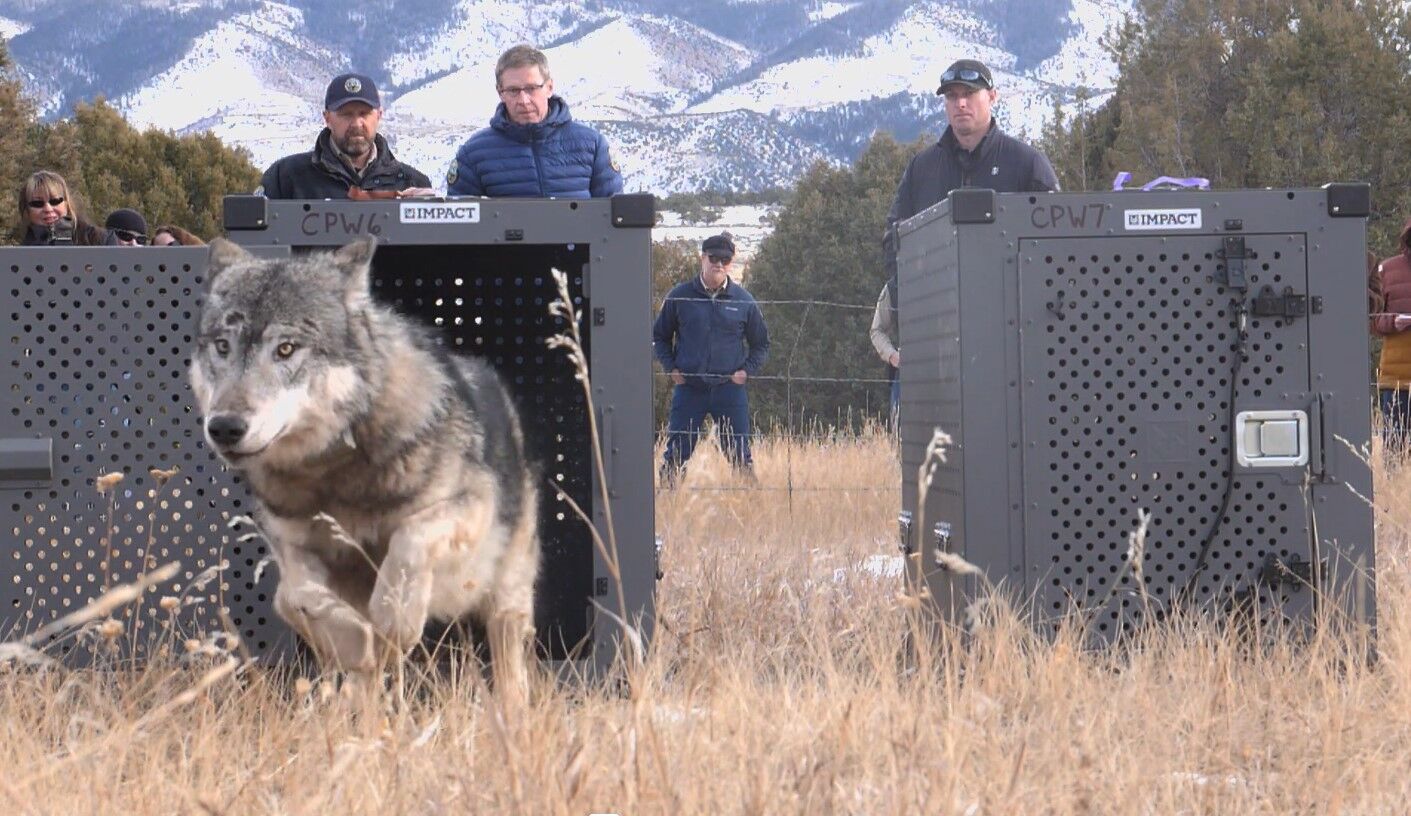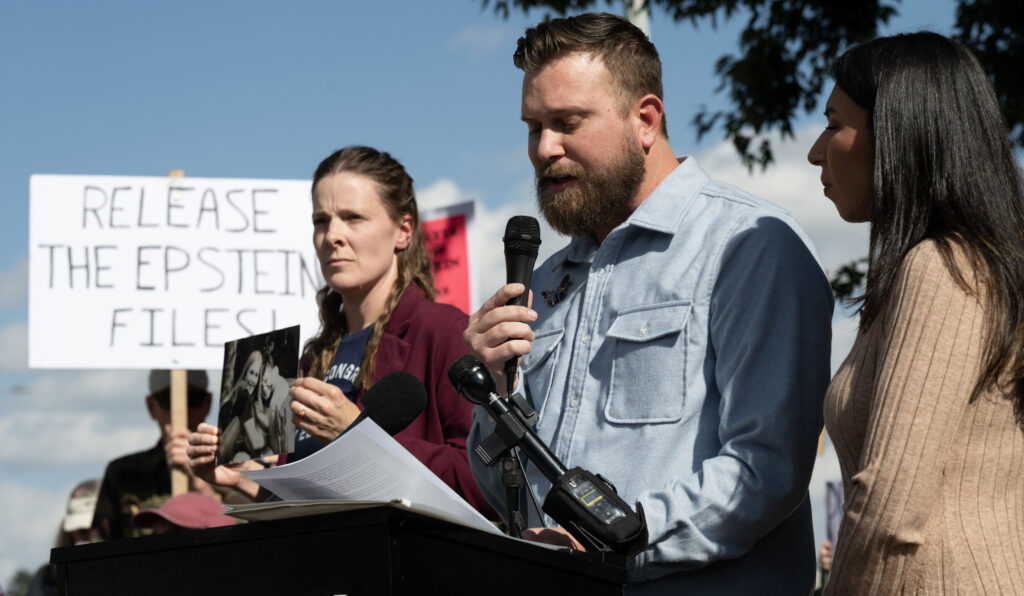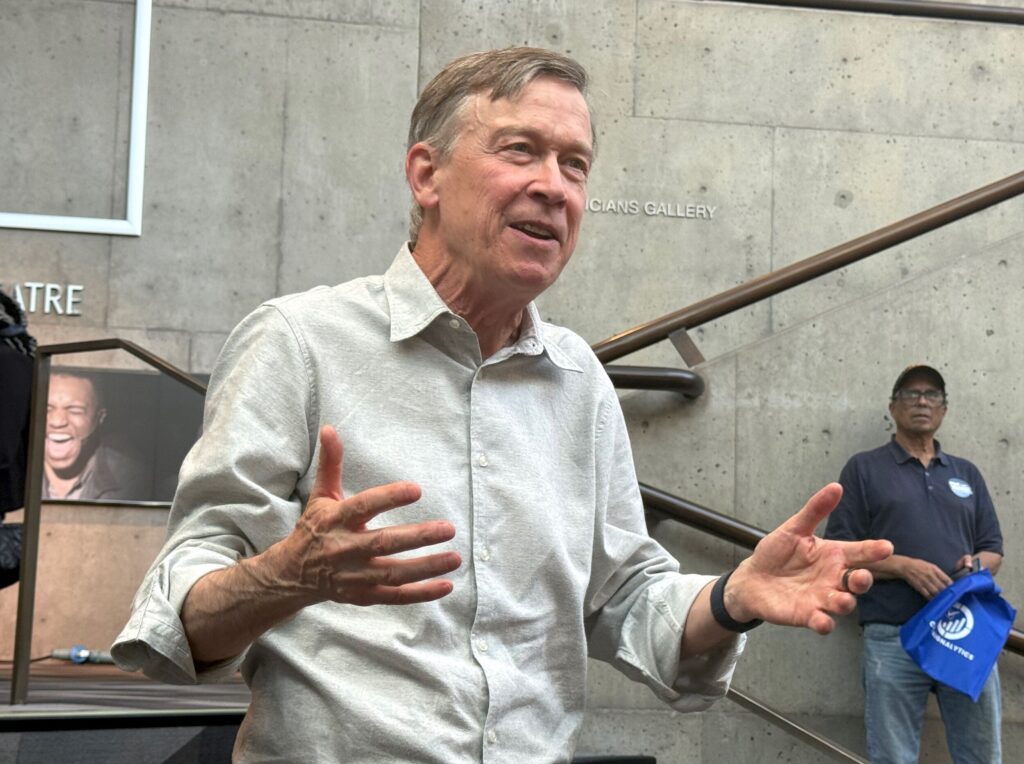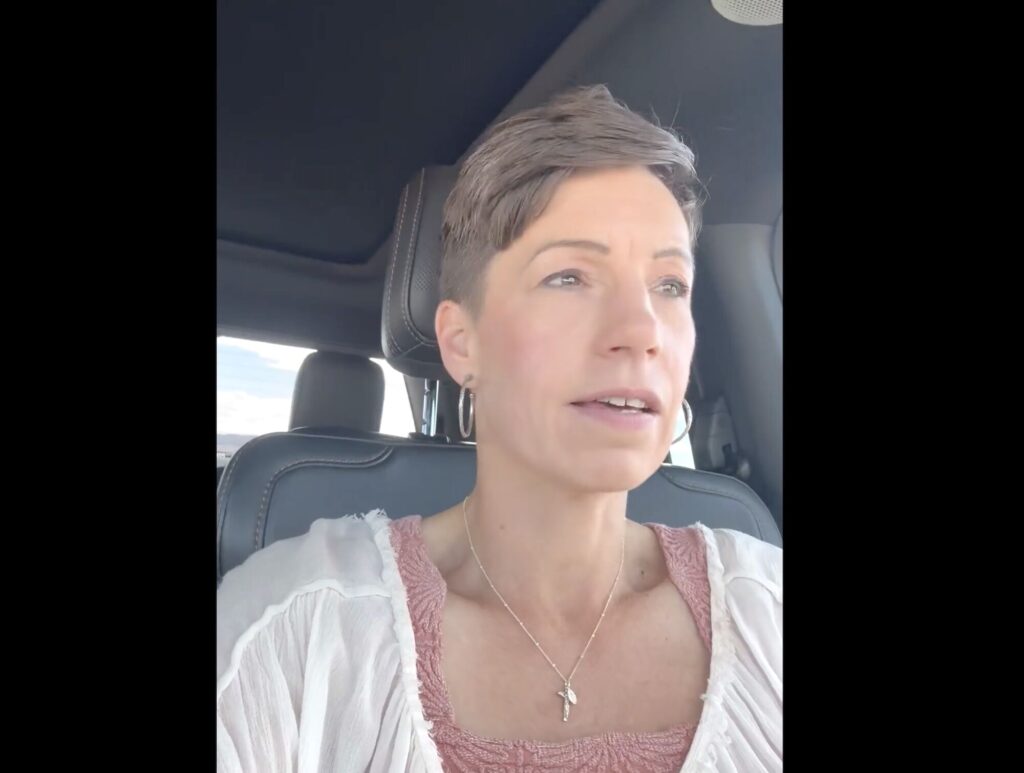Colorado governor’s wildlife appointees rejected by panel, lawmakers discuss AI gun detection, Denver to close migrant shelters | WHAT YOU NEED TO KNOW

Today is March 1, 2024, and here’s what you need to know:
Colorado Senate panel rejects Gov. Jared Polis' nominees to wildlife commission
Last year, Gov. Jared Polis appointed three people — allegedly with ties to the animal rights community — to the state’s parks and wildlife commission
But those nominees still had to go through a confirmation process with the state Senate, and on Thursday, the Senate Agriculture and Natural Resources Committee rejected two of the three, claiming they lacked the necessary qualifications to represent the constituents tied to those seats and as required by state law.
The nominations of Gary Skiba and Jessica Beaulieu, who were appointed to represent sportspersons (hunters and anglers) and outdoor recreation and state parks, respectively, were both rejected on 4-3 votes.
Colorado lawmakers discuss funding AI software to detect guns in schools
A proposal seeks to prevent shootings by providing schools with funding to acquire, install and operate AI-driven software that — the company behind the technology claims — can detect guns and alert law enforcement within seconds of the weapon’s detection.
The Colorado House Education Committee discussed the measure without voting on Wednesday.
Sponsored by Rep. Brandi Bradley, R-Roxborough Park, House Bill 1123 would provide additional financing to the state’s School Safety Disbursement Fund. The exact amount has not been determined.
Recent technological advancements have enabled the development of firearm detection software that uses artificial intelligence to detect the presence of guns without scanning students’ faces, clothing, behavior, or skin color, eliminating the potential for profiling, Bradley said.
Denver plans to close four immigrant shelters
Denver Mayor Mike Johnston on Wednesday revealed his long-term strategy for dealing with the humanitarian crisis — and the steep cost — to shelter, feed and transport the nearly 40,000 immigrants who have come to and through Colorado’s most populous city over the past 14 months.
“We knew that, as a result of federal inaction on immigration and the resulting budget crisis, that there were two important steps we needed to take,” Johnston said. “No. 1 was adjusting city budgets to help supplement the needs, and the second was to reduce the overall costs of our migrant program.”
Flanked by the administration’s new head of “Newcomers Program” Sarah Plastino, Johnston said at a news conference Wednesday that city officials in March will close four of the city’s 10 shelters used to temporarily house immigrants — which means the city won’t have to spend $60 million to operate the shelters.
No constitutional right to plead guilty, appeals court says in upholding El Paso County convictions
An El Paso County judge was not constitutionally obligated to accept a defendant’s guilty plea, Colorado’s second-highest court concluded last week.
Appealing his convictions, Timothy Ray Scott Jr. argued his trial judge violated his constitutional right to “autonomy” by not letting him plead guilty. The U.S. Supreme Court has previously interpreted the Sixth Amendment’s guarantee of assistance of counsel to include a defendant’s right to decide the “objective of the defense.”
Prosecutors charged Scott in two cases: a domestic violence dispute in February 2020 and, one month later, for killing his wife and her mother. The cases were tried jointly and jurors convicted Scott on most charges, including murder. He is serving life in prison.
Prior to trial, Scott attempted to enter a guilty plea in the domestic violence case and prevent it from being combined with the murder case. Then-District Court Judge G. David Miller said it was up to the prosecution to decide whether to agree to a guilty plea, and warned he did not not have to accept it.
Divided appeals court upholds Denver child sex assault conviction
Colorado’s second-highest court upheld a man’s sex assault conviction earlier this month, although there was disagreement between appellate judges about whether jurors properly evaluated damaging evidence of the defendant’s conduct in light of his unusual defense at trial.
A Denver jury convicted Mohammed Diawarra in 2021 for sexual assault on a child after he impregnated an 11-year-old girl. Diawarra made multiple claims on appeal, including that his Sixth Amendment right to a public trial was violated when the trial judge excluded one person from the courtroom.
Diawarra’s trial took place amid continued COVID-19 precautions, including limitations on in-person attendance. Although a social worker who had been helping Diawarra wanted to attend, as well as the social worker’s intern, District Court Judge Ericka F.H. Englert decided the intern could not be in the courtroom.
The U.S. Supreme Court has recognized that judges may close their courtrooms under specific conditions, and they can even enact a “partial” closure excluding a small number of people. Moreover, the Colorado Supreme Court has ruled that some courtroom closures are “trivial” and do not affect the underlying protections of the public trial guarantee.













